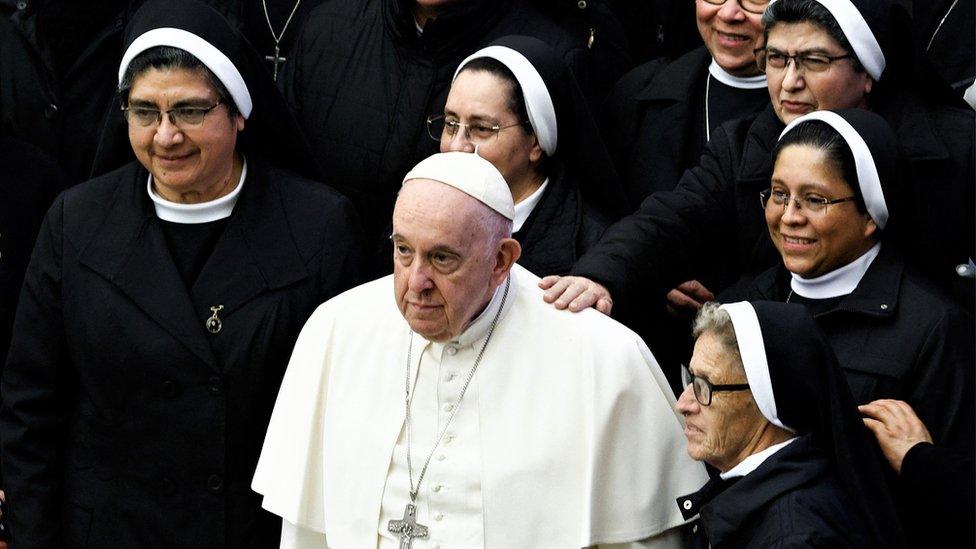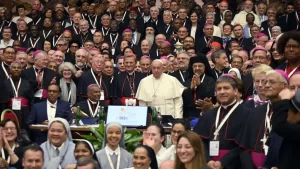Vatican Summit Concludes with Calls for Women’s Leadership in the Church
3 min read

A month-long synod at the Vatican has concluded with a renewed call for increased leadership roles for women within the Catholic Church. However, it did not address the anticipated issue of women’s ordination as priests, a topic some progressive members hoped would be part of the discussions.
This synod marked the culmination of a four-year consultation aimed at capturing the perspectives of Catholics worldwide. Pope Francis expanded this traditionally bishops-only conference to include nearly 60 laywomen among the 368 voting delegates, a significant step towards inclusivity.
The delegates voted on 151 proposals, and while all were passed by the necessary two-thirds majority, the proposal advocating for women to take on more leadership roles garnered the most “no” votes. Many advocates had hoped the synod would pave the way for women to serve as deacons, but this proposal did not advance. Nevertheless, the final document emphasized that “there is no reason or impediment that should prevent women from carrying out leadership roles in the Church,” highlighting the need for increased representation.
Currently, the Catholic Church restricts the diaconate to men, meaning only they can officiate baptisms, weddings, and funerals, but not Mass. This limitation has been a point of contention for those advocating for gender equality within the Church’s hierarchy.
Additionally, reform groups were seeking concrete measures to better welcome LGBTQ+ individuals into the Church. However, the final document fell short, only vaguely referencing those who feel “excluded or judged” based on their “marital status, identity, or sexuality.” The absence of a more explicit acknowledgment was noted by Reverend James Martin, a Jesuit priest known for his outreach to the LGBTQ+ community and a participant in the synod, who remarked that this lack of specificity was expected.

While progressives may feel let down by the outcomes, some conservative factions have also expressed dissatisfaction with the summit from its inception. Despite the varied reactions, Pope Francis, now 87, described the final text as a “gift” to the 1.4 billion Catholics worldwide. However, many traditionalists criticized the decision to involve laypeople in this consultative process, questioning the validity of gathering input from those outside the clergy.
Pope Francis has consistently advocated for a Church that prioritizes the voices of grassroots Catholics over a strictly clerical perspective. This approach has been one of the reasons traditionalists have been critical of his leadership.
Supporters of the synod assert that the mere act of engaging diverse viewpoints and facilitating dialogue represents a success in itself. “We live in a highly fractured world in which there’s ever more war and violence, and this polarization touches the life of the Church,” said Father Timothy Radcliffe, a theologian from Oxford and the chief spiritual advisor for the summit. He emphasized the importance of building friendships across differing opinions to enrich one’s faith journey.
Despite these hopeful sentiments, the future application of the discussions remains uncertain. Many observers noted that the outcome lacked bold proposals, raising concerns that the initiative, meant to foster unity, might have instead left many feeling marginalized within the Church.
In essence, while the Vatican summit has opened doors for conversations about women’s roles and inclusivity, the lack of concrete commitments and the avoidance of contentious issues have led to mixed feelings among participants. As the Catholic Church continues to navigate these complex discussions, the challenge will be ensuring that the voices of all its members are genuinely heard and integrated into its future direction.